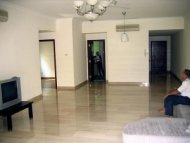insight
工程技術,地產投資,信仰家園,時尚生活This question has started more flame wars than a “Twilight sucks” comment on a teenage forum. Some people insist the answer is yes, renovations raise property value. But those people tend to have job titles like “Interior Decorator”, or something that involves making money from renovation. Other people, like property investors, say they don’t care. Which is funny, because when they’re selling you a house, the expensive flooring is a big issue to them. In this article, I look at the half-truth behind this question:

All our renovations are functional. That sofa, for example, conceals the burst toilet pipe behi…oops.
What Are The Factors?
For the most part, renovations don’t play a big role in the official valuation. But when you take into consideration extras like cash over valuation (COV), renovations do result in a higher sale price. The factors that make renovation matter are:
- Buyer’s Experience And Intent
- Current Median COV
- Designer or Contractor
- Prevailing Design Trends
- Functionality of Renovations

In conclusion sir, the buyer's reluctance has less to do with your flooring, and more to do with your referring to her as a stupid cow.
1. Buyer’s Experience and Intent
If you’re selling to a property investor, your renovations are as relevant as your hair style in a bar fight. Most property investors are not looking to move in, so it doesn’t matter how pretty your chandelier is.
Property investors will stick close to the valuation. If they’re interested in rental yields, they only care that the place looks neat. In fact, if they’re looking to rent, renovations can even be a disadvantage. Can you imagine renting a house with vertical gardens or a crystal chandelier to college students? There’d be European debts smaller than the monthly repair bill.

Perfect for anyone who spends their life watching TV, drinking beer, and staying unemployed. (i.e. The clientele of every Lucky Plaza KTV).
With home buyers, the situation is different. Comfort is their main focus, so renovations can prompt them to pay more. Also, home buyers tend to be less experienced than property investors; they may not know the hard rules of location and resale value. As such, they may prize the cosmetic features of the property over its real value.
2. Current Median COV
However pretty your renovations look, the current median COV will be the main determinant. The COV determines the amount paid for the property above the official valuation; it’s a sensitive issue, because a bank loan does not provide for it.
So before forking out for renovations, take look at COV prices in your area. If the median COV is low ($10,000 or under), then don’t expect your renovation to “pay for itself”. Singapore’s property market is highly efficient; with sites like iProperty, H88, and SmartLoans, there’s almost no chance of suckering a buyer.
If the median COV in the area is $10,000, then paying for a $50,000 renovation gets you…well, 40,000 reasons to take up adult maths classes.

Here come the viewers. Get ready: Once Block 76 signals their new asking price, raise ours to match,
3. Designer or Contractor
Yes, a contractor can double as an Interior Designer. But that’s as clever an idea as getting your car mechanic to double as your dentist.
Interior Designers and contractors seem similar, but they’re not. Interior Designers are up to date on current trends (see point 4), and prestigious design firms can lend branding to your property. Contractors are execution stage, hands-on people: They’re the ones who stick on the tiles and drill into the walls.

When will the contractors get started? What do you mean? This IS the end product.
In Singapore, the term “Interior Designer” is not heavily regulated. At some point, contractors started calling themselves designers as well. And home owners started wondering why, after $30,000, their flat still resembles the set of Prison Break.
Since renovations in general aren’t cheap, it’s best to fork out a bit more to get a recognized design firm. Remember: If the renovations are anything short of spectacular, they won’t justify your asking price.
4. Prevailing Design Trends
Like the fashion industry, interior design has its own trends. Back in the 80′s, art deco was all the rage in Singapore. As of ’05, the industrial look has grown in popularity.
If you’re not intending to stay long, picking something “in vogue” might help. Contemporary styles (all chrome and mirrors) can make a HDB flat resemble an upmarket condo. That’s why few showrooms use traditional design schemes; they’re counting on a “wow” factor to halve the buyer’s IQ.
But if you’re not intending to sell for a while, it’s inadvisable to follow trends. The industrial vibe may be cool today, but in five years, your viewers might be wondering why you live in a factory supply closet. Traditional design schemes (e.g. country house, east Asian, high modernist) are a safer bet. They may not raise your property value, but they won’t detract from it either.

Excuse me, I think you missed a few spots with the wallpaper.
5. Functionality of Renovations
Functional renovations are the biggest contributor to COV. That is, renovations that do something besides look good. Local favourites are:
- Walk-In Wardrobes
- Wet Rooms
- Kitchen Islands
- Any sort of partitioning that allows the kitchen to double as a study room or TV room
- Bar counter seats (sometimes attached to the kitchen island)
These renovations count for more than cosmetic features, such as materials used in tiling, or a ceiling motif. The downside is that these renovations also cost more; so while they may raise your COV, your asking price still may not cover them.

It's a shoebox apartment. Can we count the entire design as a single walk-in wardrobe for billing?
In general, renovations can raise your COV, but do little to help the official valuation. Also, it tends to be high cost renovations that justify a higher asking price. Even if those renovations raise your COV, you may not see a return on investment.
As such, it’s best to treat renovations as a luxury to enjoy, rather than an investment of any sort.






